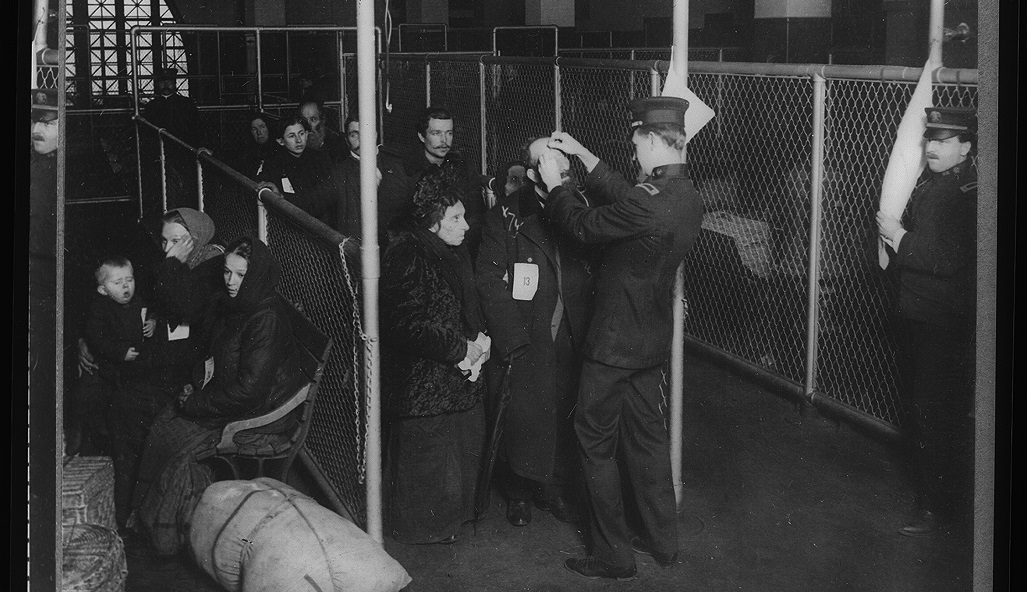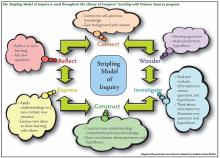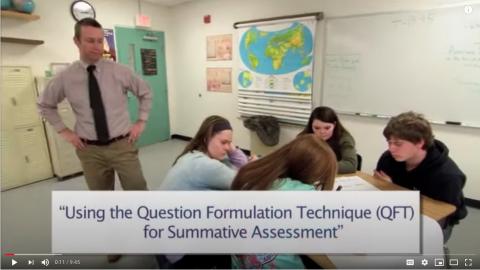
INQUIRY STRATEGIES
In recent years, there has been a growing consensus that History and Social Science educators must explicitly teach inquiry and historical thinking. A vital yet challenging aspect of inquiry is to teach students to generate and to investigate their own meaningful and effective questions. (See Alfie Kohn's thought-provoking article on supporting students’ questions: Who’s Asking.) Students with Disabilities and English Learners have a right to learn inquiry skills, and they often bring distinct strengths to well-structured investigations.
Emerging America employs multiple strategies and tools to help teachers and students develop the skills necessary to deepen analysis and investigation. Primary sources are central to all of them, a point emphasized in state and national academic standards. See, for example, National Council for the Social Studies (NCSS) C3 Framework and Massachusetts 2018 Framework. Please explore the strategies below to choose those that work best for your classroom and students. For each, link to a "how-to" explanation.
Browse the strategies below, and more, with a search for "Teaching Strategies" in the Emerging America library of Teaching Resources.
Overall Inquiry Strategies for History and Social Science
- Stripling Model of Inquiry: Overarching framework and theory of inquiry-based learning. (See graphic at right.)
- College, Career, and Civic Life (C3) Framework for Social Studies State Standards: National Council for the Social Studies (NCSS): Detailed, skills-based standards framework, organized in four grade bands, with standards for Civics, History, Geography, and Economics. Supplementary standards for Psychology, Sociology, and Anthropology. (Link goes directly to NCSS.) Most states incorporate C3's approach.
Instructional Tools to Promote Inquiry with Primary Sources
- Observe, Reflect, Question–Investigate - Primary Source Analysis Tool - Library of Congress: (Also known as "Observe, Reflect, Wonder"). A durable, flexible tool. The Library of Congress Teachers Page offers questions for several types of primary sources, including maps, film, oral histories, manuscripts, and newspapers, etc.
- Question Formulation Technique (QFT) - Right Question Institute: A penetrating approach to developing and using questions that is both immediately practical and far-reaching. Follow this link for an explanation of the QFT as a Teaching Strategy to promote access to inquiry. Multimedia on the QFT:
- QFT - Special Student Populations Tips from a diverse group of teachers. (2020).
- Social studies teacher, Joshua Beer, Goshen Lempster Institute, New Hampshire, demonstrates and explains Using the Question Formulation Technique for Summative Assessment. (9:45 mins)
- RQI YouTube channel offers multiple useful videos.
- Visual Primary Source Analysis Tool - Quadrant Analysis: Emphasizes close reading and analysis of images.
- Circle of Viewpoints Thinking Map - Visible Thinking project at Harvard's Project Zero: A thinking routine used to enhance perspective-taking.
- Read and Analyze Non-fiction (RAN) Chart - A vast improvement on the Know, Want-to-Know, Learn (KWL) chart. This dynamic tool provides a ready visual structure for the inquiry process and supports students challenging their misconceptions.
- Historical Thinking Chart Sourcing, Close Reading, Contextualization, Corroboration - Digital Inquiry Group (formerly known as the Stanford History Education Group [SHEG])
- Document Analysis Worksheets - National Archives: Offers novice and intermediate versions with prompts for several types of primary sources, including maps, video, sound recordings, and documents: (Link goes directly to the National Archives.)
- Introduction to Digital and Physical Archives (and searching) - Helen Keller Archive, American Foundation for the Blind. Accessible lesson for all ages begins with asking students about their own collections. Pairs well with follow-up lesson on Primary and Secondary Sources.
Additional Recommended Resources
-
- Facing History created an online library with dozens of practical teaching strategies to enliven lessons and broaden student expression, including many inquiry-based activities. Examples include two-column note taking for inquiry, the think-pair-share process, gallery walk, visual tools: Crop It, Analyzing Images, and more. An on-demand professional development section features videos on specific lessons and lesson types.
- Maryland Humanities and Maryland Public Television offer an excellent set of step-by-step virtual Research Learning Modules.
- New Visions for Public Schools published a guide to Making Thinking Visible in Remote Classrooms.
Model Lessons that Demonstrate Inquiry Strategies and Tools
Injuries and Disability in 19th Century Industry – Stripling Model of Inquiry, and Read and Analyze Non-fiction (RAN) chart
Immigration: The Making of America – Visual Primary Source Analysis Tool - Quadrant Analysis
Propaganda Posters in the Spanish Civil War – Observe, Reflect, Question–Investigate tool




